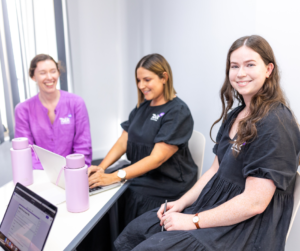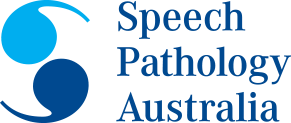Speech pathologists and speech pathology students may be asked to provide therapy for reading and spelling difficulties. It can be tricky to know where to start, but fortunately, there are some steps that you can follow in order to get started. In this blog post, we will discuss some of the key things that you need to consider when providing therapy for reading and spelling difficulties. So, if you are looking for some guidance on how to approach this type of therapy, keep reading!
1. What are the difficulties with reading and spelling for people who have dyslexia or other specific learning disabilities
Reading and spelling are two of the most essential skills for success in school and in life. However, for people with dyslexia or other specific learning disabilities, these skills can be extremely difficult to master. According to the National Institute of Child Health and Human Development, dyslexia is a neurological disorder that affects reading skills. It is estimated to affect up to 1 in 5 children in Australia. People with dyslexia often have difficulty with phonemic awareness, word decoding, and word fluency. As a result, they may struggle with reading comprehension and spelling.
There are a variety of interventions that speech pathologists can use to help people with dyslexia or other specific learning disabilities. However, it is important to choose an intervention that is based on evidence. It is structured and sequential, and best of all, evidence based. You may hear speech pathologists talk about Synthetic Systematic Phonics (SSP) programs. Examples of SSP programs include the Orton-Gilligham Approach and the Sounds-Write Program. Both programs are research-based that have been shown to be effective for people with dyslexia or other specific learning disabilities. Private practice speech-language pathologists who use the Big 6 model can provide individualized instruction that addresses the unique needs of each client. With this evidence-based approach, people with dyslexia or other specific learning disabilities can improve their reading and spelling skills.
2. How can I do therapy to help kids with reading and spelling
Reading is such an important skill for kids to learn. Not only does it help them in school, but reading also opens up a whole new world of knowledge and understanding. Unfortunately, some kids have difficulty reading, and this can be a real struggle for them. Fortunately, speech pathologists can help. Speech pathology can involve various activities to help improve reading skills, such as working on phonemic awareness or implementing a specific SSP program. Decodable books are also great for SSP. We love using the Little Learners Love Literacy series. They come in soft-cover books and as iPad apps.
3. What are examples of phonemic awareness activities
Here are examples of therapy to do for reading and spelling difficulties.
-identifying first sounds in words. For example, the clinician pulls a toy out of the bag and the child needs to say the name of the toy slowly and then work out does it start with a “p” or a “f” sound.
-identifying which two out of three words start with the same sound. An example activity would be using articulation cards (without words) and blu-tac them to the wall. The clinician says the name of each picture. The child works out the first sound in each picture. The child throws a ball at the two pictures that start with the same sound.
-identifying last sounds in words. My favourite activity for this goal is using a train picture with a target on the last carriage. The child picks a card out of the bag and says the sound. They point along the train at the same time as saying the word. The child stops on the target and says the last sound. When they get it right, they are rewarded with a turn of the Nerf gun to shoot the target and the clinician reinforces the learning by saying, “That’s right, “sh” is the last sound in bush”.
-blending sounds to make a word. The clinician puts out rhyming cards (no written words) and sounds out the words. The child blends the sounds and determines which card is correct. Every correct response earns them a sword. When they get all the swords, they play Pop The Pirate.
3. What should I consider when choosing a therapy program
When you are choosing a therapy program for your client, it is important to consider their individual needs. If they are struggling with reading, then a program that focuses on phonemic awareness and vocabulary might be a good fit. If they are having difficulty with spelling, then a program that emphasizes phonics and word families could be helpful. And if they are dealing with speech problems, then a speech pathologist may be able to recommend an appropriate therapy program. By taking the time to assess your client’s specific needs, you can ensure that they receive the best possible care.
4. How much progress can be made through therapy
Every child progresses at their own rate. Some learn to read quickly, while others need more time. With the help of a speech pathologist, your client can make progress and reach their full potential. It is important that when targeting synthetic, systematic phonics, the child practices reading and spelling in therapy sessions. Therapy must involve activities at the word, sentence, and paragraph levels. After all, a child gains meaning when reading and spelling words in context. Similarly, teachers target reading and spelling with sight words AND with readers. When reading and spelling activities are targeted at the right levels and learnings are reinforced daily, the child will improve much faster.
5. What are some of the challenges that come along with doing therapy for reading and spelling difficulties
When it comes to reading and spelling, every child has their own unique set of challenges. For some, the difficulty lies in identifying the individual sounds that make up words. Others may have trouble blending those sounds together to form words. And still others may have difficulty reading words that are not commonly used or spelled phonetically. These challenges can make reading and spelling quite frustrating for both children and parents alike. However, with the help of a speech pathology professional, these challenges can be overcome through teamwork. Speech pathologists help children by working one-on-one or in small groups and explicitly teaching skills at the breakdown level. In addition, they can also provide guidance and support to parents to ensure that progress is made at home as well. The best results are achieved when the speech pathologist works with the child’s teacher and parents. Unless all key stakeholders are on the same page, reading and spelling will continue to cause confusion for the child. Speech pathology is one piece of the pie. The challenge can sometimes lie in getting all the team working together in the best interest of the child at the centre.
6. How can parents support students who are in therapy
Parents play an important role in supporting their child’s speech therapy. While the speech pathologist will work with the child on specific goals, there are many things that parents can do at home to support their progress. Shared book reading is a great way home practice activity to help them with their speech. Parents can also help them to practice writing their spellings with their fingers in a tray of uncooked rice. Kids love this type of multisensory learning! Encouraging parents to take turns in leading your therapy activities can help them fully engage in the therapy process. It also helps parents confidently deliver home practice between sessions. Encourage parents to write down the home practice tasks. This will help them understand and remember what to do between therapy sessions. Your ability to clearly communicate and demonstrate home practice is crucial in empowering parents to support their children who are in therapy.
Want to learn more about implementing therapy programs for reading and spelling? Here are two things for you:
- Send me a DM via Instagram with your questions. I would be happy to help.
- TalkHQ has an entire Learning Portal of evidence-based training for our speech pathologists. Book a call to chat with me about TalkHQ’s unique professional development package. We can help support your clinical learning and career goals.
Written by Julie Sexton, Senior Speech Pathologist and CEO of TalkHQ.







